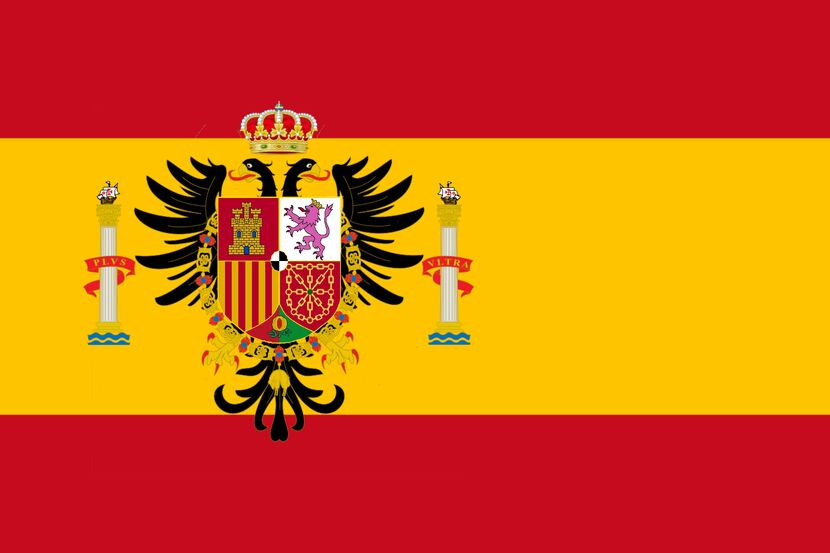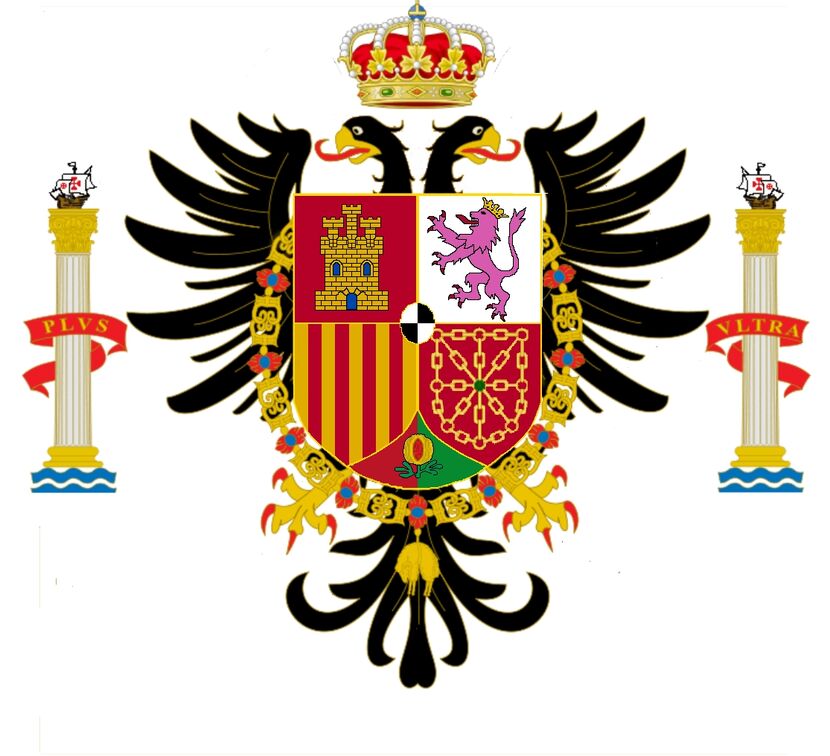Thanks to everyone!
@Faralis, Razgriz 2K9: Linense is right, the eagle is Charles I's.
@Razgriz 2K9, Linense: Yes, the Philippines are evolutioning quite well towards modernization.
@Razgriz 2K9: Well, Dahomey is right now a bit far away from the Spanish zone of influence, but it is yet possible for them to go there.
@Linense, Archangel: I have corrected the name. I used Gambia because I saw that name next to Portuguese Guinea and I got confused.
@ramones 1986: Thanks for the info on the Cordillera Central! I will mention it as part of the Spanish exploration and expansion efforts. About the reason I used the red-and-green background for the part about Granada... well, I thought it looked better this way. Besides, it paves the way for future developments

.
@Jonathan Edelstein: the answers to your questions.
1: The ones with political autonomy are, right now, Cuba and Puerto Rico. The ones with administrative autonomy are the thirteen that form Spain proper (Andalucía, Aragón, Bética, Castilla La Nueva, Castilla La Vieja, Cataluña, Extremadura, Galicia, León, Levante, Vascongadas). The Philippines are, right now, a colony, although soon they will have political autonomy.
2: The Foral Regions do have some control over administrative issues, like the Basque Country had before, but those are the same for all Regions, and they are smaller.
3: Second languages (Catalan, Valencian, Galician, Basque) are taught at schools, but they are used only in those classes, most classes are taught in Spanish.
4: Indeed. Some autonomy now will prevent the "explosion" of nationalism later, although, of course, there will always be some groups that demand further autonomy or independence.
5: Diversity can still happen in a nationalist state. It is a matter of how to put it. For example, the USA is formed by many different "nationalities", and yet they form one nation that encompasses them all.
6: In Franco's time, decolonization was the order of the day, and most of Africa was becoming independent then, so Franco looked to trying to keep Guinea and Western Sahara into remaining as a part of Spain. Now, we are at the time of the Scramble for Africa/African Division, and most European territories in there are very small, and there are not enough white European people to consider their becoming autonomous. Once infrastructure is developed well enough, and the Spanish people realise that the African people are perfectly able to engage in politics, Guinea and all Spanish territories will become Foral Regions. But not yet.

